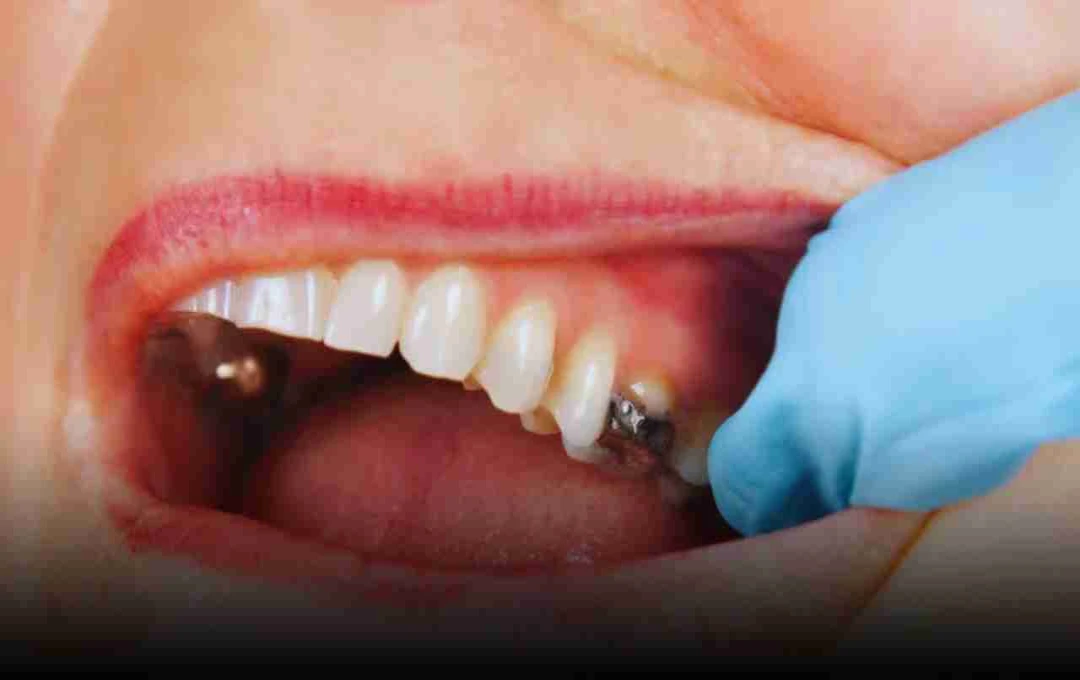In today's fast-paced and unhealthy lifestyles, dental problems have become commonplace. Poor diet, excessive sugar consumption, frequent snacking, and inadequate oral hygiene are all contributing factors to tooth decay, also known as cavities.
A cavity is not just a small hole; it's a gradual erosion of the tooth's outer layer. If left untreated, it can reach the nerves, causing significant pain and discomfort.
How does tooth decay occur?
When we consume sugary treats like candies, chocolates, or sticky foods frequently and neglect to clean our teeth, these substances adhere to the tooth surface. These clinging food particles promote bacterial growth. These bacteria accumulate on the teeth, producing acids that gradually damage the tooth enamel.
Over time, the enamel weakens, and small holes, or cavities, begin to form. If brushing is neglected and the condition is ignored, the decay can worsen and penetrate deeper into the tooth, leading to pain, inflammation, and infection.
Early Signs of Cavities

Initially, cavities may go unnoticed as they are often painless. However, as the decay progresses, certain symptoms may appear:
- Sensitivity to hot or cold food and drinks
- Pain when consuming sweets
- Noticeable holes in the teeth
- Bad breath
- Pain while chewing
Ignoring these symptoms can lead to serious complications, potentially necessitating root canal treatment or tooth extraction.
Preventing Tooth Decay
Maintaining Oral Hygiene: Brush twice daily, making it a habit. Brushing before bed is crucial to remove bacteria accumulated throughout the day. Use fluoride toothpaste, as it strengthens enamel and prevents decay.
Dietary Considerations: Minimize consumption of sweets, sugary drinks, chocolates, cakes, pastries, and sticky foods. These promote rapid bacterial growth on teeth. Incorporate healthy foods like fruits, vegetables, milk, yogurt, cheese, and lentils into your diet.
Avoid Frequent Snacking: Constantly snacking leads to increased acid production on the teeth, raising the risk of cavities. Follow a pattern of three main meals and two healthy snacks per day.
Regular Dental Checkups: Only a dentist can detect early signs of tooth decay. Regular checkups (every six months) can prevent major problems.
Home Remedies and Natural Treatments for Cavities
If decay has begun, certain natural remedies may help prevent its progression and alleviate pain.
- Clove Oil: Eugenol in clove oil reduces pain and inflammation. Apply clove oil to a cotton ball and place it on the affected tooth. Repeat 2-3 times daily.
- Coconut Oil Pulling: Swish 1 teaspoon of coconut oil in your mouth for 10 minutes on an empty stomach, then spit it out and rinse. This helps reduce oral bacteria and prevents tooth decay.
- Turmeric Paste: Turmeric possesses antibacterial properties. Mix half a teaspoon of turmeric with a little mustard oil to form a paste and apply it to the teeth. This reduces toothache and inflammation.
- Neem Twig Chewing (Datun): Neem has natural antiseptic properties. Chewing a neem twig cleans teeth and prevents bacterial growth.
- Warm Salt Water Rinse: Gargle with a glass of warm water mixed with half a teaspoon of salt twice daily. This eliminates oral bacteria and reduces inflammation.
Special Measures to Prevent Cavities in Children

Children tend to consume more sweets and candies, making them prone to early tooth decay. Parents should:
- Have children rinse their mouths after consuming sweets.
- Ensure children brush twice daily.
- Use fluoride toothpaste (age-appropriate) for children's brushing.
- Schedule dental checkups every six months.
- Clean children's mouths immediately after bottle-feeding.
When to See a Dentist
Persistent toothache or difficulty chewing indicates a potential serious dental problem. Many people ignore mild toothaches, but this can lead to significant discomfort later. Don't ignore bleeding gums or swollen gums.
Consult a dentist immediately in such situations. Delayed treatment can worsen the problem, potentially resulting in tooth extraction. It's best to take precautions early and contact a dentist to prevent pain and decay.
Tooth decay (cavities) is a common but serious problem that, if left unchecked, can lead to tooth loss. It's best to prevent it through proper oral hygiene, diet, and home remedies. Regular dental checkups are also crucial for early detection and treatment.





